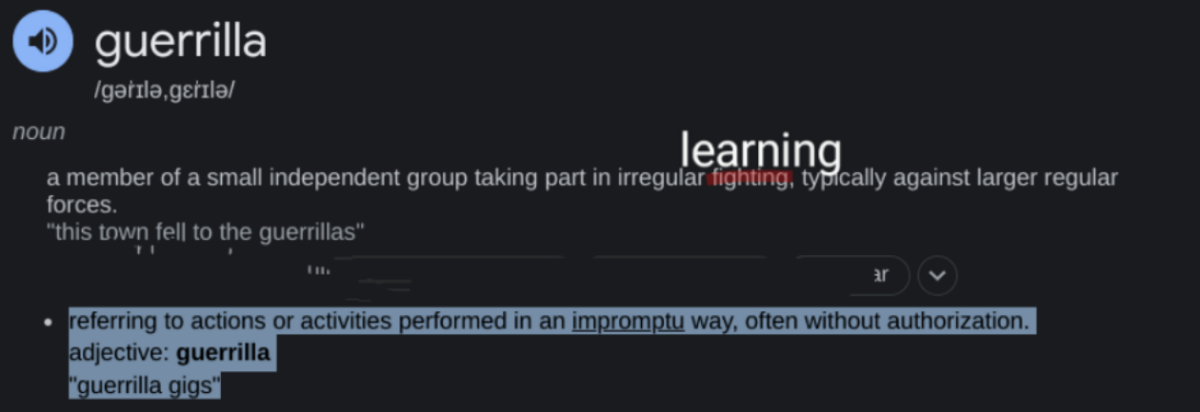I spoke about Hobbes and free will and it was rightly pointed out that there is a quotation which goes against my interpretations. Continue reading "PHi2003 Free will and determinism, Hobbes and ships"
Month: October 2013
PHI1010 and PHI2003 Secondary research
In both the stage 2 and stage 3 modules, there is a huge focus of the history of ideas as well as the problems of philosophy. Continue reading "PHI1010 and PHI2003 Secondary research"
PHi3001 Sceptics and might is right
Sceptics are resistant and if they want to bite the bullet and avoid a normative agenda then the claim that might is right is hard to derail. However, they — the sceptics — often cannot resist a claim about the promotion of the interests of a specific class and implicitly assert a normative agenda.
Next week, I want to start with a tutorial on paternalism. Read Berlin (available in blackboard) and then think about these berlin tutorial questions. Above all, think about a government with the power to choose what you wear and which job you do. Why shouldn’t it have this power? Answers, puzzles and comments can be posted into the comments/replies below. You only need to log in with your normal university username.
Thursday and Friday
As I mentioned last week, I am afraid there will be no lectures on Thursday or Friday as I am away at a conference on the subject of cosmopolitanism. Continue reading "Thursday and Friday"
PHI2003 Lecture 1 and next week
Today was an introduction that was perhaps less structured than I normally am, but it is good to get off with a discussion rather than a mere one way passing of information. Next week, as you know, I’m off at a conference so the lecture will be rearranged for later in the term. However, have a look at the questions and the tutorial on cannibalism. The crime is interesting because it involves killing for survival so is both necessary and abhorrent. It really does test our intuitions and leaves us somewhat conflicted. Read the first few chapters of Hobbes’s Leviathan and then answer the questions from seminar 1. When you’ve done that reply below with some of your own thoughts.
PHi1010 Lecture 1 and next week
Welcome to Philosophical Studies and the PHi1010 Module. The subject matter is knowing, reality and truth. Not too much to get through in 11 weeks, then.
Today was just an introduction to what philosophy is and how it is performed. If you take anything from the lecture, it is that if you hold a belief and want it to held by others, then you ought to have bloody good reason that are rational and coherent. We are now going to look at the Theaetetus and see whether Plato himself has good reasons for holding his general claim that empiricism is not a good theory of knowledge. Start reading the dialogue which you can download for free http://www.amazon.co.uk/Theaetetus-ebook/dp/B0082SSDHO/ref=wl_it_dp_o_pC_nS_nC?ie=UTF8&colid=39QXP5XJJJY4W&coliid=I3SOGWJISUF4GA. The introduction is very good in this edition, but begin by reading the dialogue itself.
Next week, unfortunately, there will be no lecture as I am away at a conference. I may try to set up tutorials for next week — check your emails regularly. I shall timetable an extra lecture for the future.
PHI3001 Lecture 1 and next week
Today was just an analytic discussion of the concept of power which we have, more or less, established as the capacity of one agent to make another agent act in a way other than he or she would have done had the other agent not been “present”. We can observe power when one person actually makes another do what the first wants (this is the first dimension of power). However, this does not tell us about whether one should have or exercise power only that they have exercised it or can do so. If you want to argue that that is all power actually is, then you believe having power is self-justifying or might is right. I can do what I want because I can do what I want.
As you know, next week I am in Rome at a conference on “Cosmopolitanism and conflict” so there won’t be a lecture, but I want you to read the extract from Rousseau’s Social Contract (Rousseau might is right) and answer the questions below. Rousseau here talks about whether might can be right. Post answers to the questions below and I’ll participate in discussions.
- What does it mean to say force is concerned with necessity and right with will?
- Why can’t ‘force is right’ be a meaningful or useful statement?
- Why are all rights merely conventions?
- Why do we consent to conventions?
- What would authentic consent amount to?
- Why is renouncing liberty identical to renouncing my humanity according to Rousseau? Is he right?
- Is legitimate power possible given the final sentence of the extract?
Welcome back and some free books
This is a repetition of some information I have already posted but it is very useful and hence worthy of the repetition. Books are really expensive and you might feel a little aggrieved when you’re asked only to concentrate on an extract, especially when you have bought it. |However, many of the historical texts are available online for free in the form of etexts. One should, of course, be very careful about both accuracy and also copyright.
Some good places to begin your search are:
http://ebooks.adelaide.edu.au/index.html
http://www.earlymoderntexts.com/
Or, just try typing ‘free etext’ plus title of the work and author into a search engine and see what happens. You may also want to try certain ebook suppliers who I do not want to advertise, companies that rhyme with Damazon and Poogle Play. They also offer free versions of books. I have also shared a wish list on Amazon of some of the texts available for free:
http://www.amazon.co.uk/registry/wishlist/39QXP5XJJJY4W
